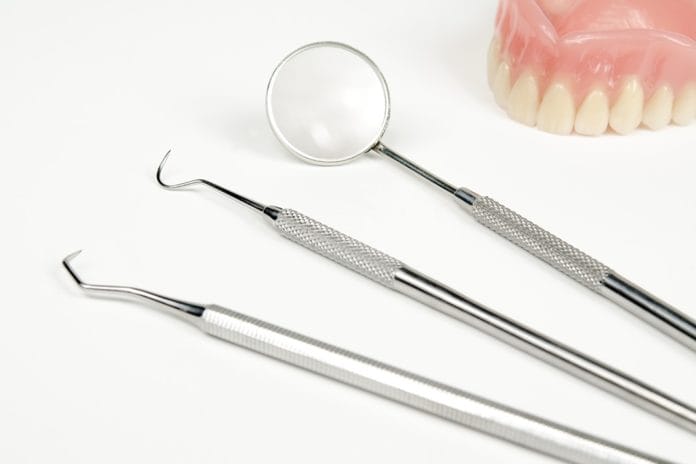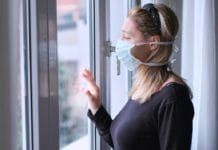The clock is ticking along rather quickly in the dental operatory when your next patient arrives before you have even scheduled your current patient’s next appointment. The operatory needs proper disinfecting, you’re thirsty, and you need to use the restroom. Once again, your needs will have to wait.
There is little, if any, downtime for hygienists in busy practices. If the chair is open for more than a few minutes, the doctor finds a patient who “needs a cleaning.” Stocking the operatory is done at record speed as you desperately load up with the most urgent items with the timeline that you have available.
As you begin the prophylaxis, periodontal maintenance, or scaling and root planing on your next patient, you realize that your instruments are now subpar due to the lack of a sharp edge. Thankful for ultrasonics, you let the “power tool” do most of the work, but you experience difficulty with the fine hand scaling. Being the “Type A” hygienist that you are, you decide to worker harder, not smarter, and give it your all to make sure the patient leaves with teeth free of debris and feeling smooth.
In the process, you find yourself pinch-grasping the instruments with the extra force that prompts hand-fatigue to set in earlier in the day. Giving your all to your patient, you do not realize that they leave feeling like they just had a “rough” cleaning and end up calling back to the office to complain about you to the front desk personnel. They are scheduled with the “other” hygienist who (like you, is also lacking sharp instruments) will give her all to make the patient happy. By the way, that patient whom you thought was free of debris now has burnished calculus that acts as a petri dish to nest more bacteria.
By midmorning, not only do your hands ache with fatigue but the extra force required to work with dull instruments has left you hunched up like a chicken with a broken wing. Now your shoulders and neck hurt as well. You think to yourself, “I need a good massage and some yoga when I get home.” You may also be thinking, “How much longer can I do clinical hygiene with this kind of pain?”
How can this scenario work out better?
Perhaps sending instruments out to be sharpened by skilled off-site companies is the perfect answer. They have the skills and time needed to get that sharper edge perfected. Send out one set of instruments to the company of your choice as a trial run. If you are happy with the results, send out several packs at a time and keep a few sharp packs in your drawer as backup.
The best way to find a good sharpening company is to go online and network with fellow dental hygiene cohorts to see who they like and recommend. This may be the perfect answer to your sharpening dilemma.
Another idea is to simply block out time on your schedule once a week for sharpening instruments. Simply mention this to the staff during a morning meeting so that everyone in the office realizes the importance of keeping the block open. Inform them what dull instruments do to you, to the patient, and the bottom line.
After all, the doctor does not want to pay workers’ compensation for carpal tunnel surgery or physical therapy, or lose a patient because he/she felt the hygienist was “too rough.”
Perhaps picking a day each week to sharpen instruments prior to seating each patient, even if it means having the patient wait an extra five minutes in the waiting room, is all it takes to give those instruments a sharper edge.
Even the most skilled hygienist working with dull instruments leaves calculus. Burnished calculus could cause a periodontal infection, bone loss, and a visit to the periodontist (which could lead to an unexpected lawsuit). Sometimes when we try to please everyone, we end up hurting ourselves and the ones we are trying to help. This is important to realize. Sometimes we get so caught up in the crazy hygiene timeline that it seems impossible to do the tasks that really matter the most.
The dentist would never do surgery with a dull blade or dull bur. Why do we allow ourselves to be run by the schedule? The answer is because we allow it, by not speaking up for ourselves!
Dull instruments can:
- Add time to the appointment as they decrease effective scaling time.
- Tear tissue.
- Burnish calculus instead of removing it.
- Lead to periodontal infections from said burnished calculus.
- Put you in danger of lawsuits from the periodontal infections and “unintentional managed neglect.”
- Cause drastic user fatigue.
- Influence the bottom line with workers’ compensation surgeries and physical therapy.
- Cost the office as patients quietly leave the practice as a result of a “rough hygienist.”
- Cost a hygienist the longevity of a career in her/his pursuit of happiness!
In conclusion, please take the time required to sharpen your instruments. This is a perfect example of where “an ounce of prevention is worth a pound of cure.” Whether you decide to send your hygiene instruments out to a sharpening company or sharpen them yourself, the smartest hygienist likes the sharper edge that allows him/her to “work smarter, not harder!”











